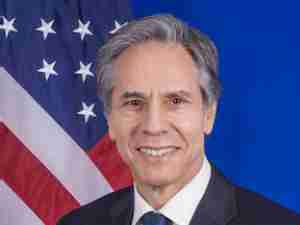The jobless rate in the continent's biggest economy is estimated at between 30 and 40%, and there has been growing labor unrest in the past few weeks as unions press for higher wages in deals spanning the next few years.
Rato said South Africa's sound fiscal and monetary policies had laid the ground for sustained economic growth, but he emphasized that reforms introduced to liberalize the economy should continue, including more privatization and labor reform.
"By reforming the labor market South Africa could achieve not only more economic growth in the future but also a reduction of the unemployment levels. I think there is potential for an increase in the growth rate," he told reporters.
South Africa's annual growth rate has averaged 2.7% in the past 10 years, nearly double its level during the previous decade, which was under apartheid rule.
There are signs that growth is gathering momentum this year, with an increase of 3.9% in the second quarter of 2004, up from 3.6% in the first three months.
"The economy is presently enjoying a recovery in activity that we expect to continue through at least 2005. Growth needs to be elevated to a higher plateau if there is to be a significant fall in unemployment," Rato said in a statement.
The IMF chief was speaking on his second trip to the world's poorest continent since taking up his post three months ago. He was visiting South Africa ahead of an African Union summit on employment and poverty in Burkino Faso in West Africa.
Steps to boost economy
Reducing redundancy costs, introducing more flexibility into wage-setting and making it easier for small and medium-sized business to get finance would all help South Africa's economy, Rato said in reply to a question.
Rato said the IMF saw room to "strengthen" privatization of the country's electricity sector - which is next on the government's reform agenda.
The pace of privatization has slowed sharply in the country over the past year, but officials maintain there is no change in its policy and the government plans to sell 30% of power utility Eskom's generating capacity by 2006.
Rato did not indicate whether the IMF believed that strength in South Africa's rand - which has rallied by about 70% against the dollar since December 2001 - was hurting the economy, but said the unit was valued "rationally" by markets.
"The rand is in line with fundamentals in the economy," he said in reply to a question. There has been a growing outcry for steps to weaken the currency after its gains eroded exports, corporate profits and jobs.
The IMF chief sounded an upbeat note on prospects for the rest of the continent, although he said that countries which had sound economic and governance policies were much better off.
"Supported by the recovery in global economic activity, we expect economic growth in sub-Saharan Africa to rise to over 4.5% in 2004 and to in excess of five percent next year," he said in his statement.
But Rato pointed out that developed economies had to play their role, through increased development assistance - preferably in the form of grants - and further liberalization of trade, eliminating subsidies.








